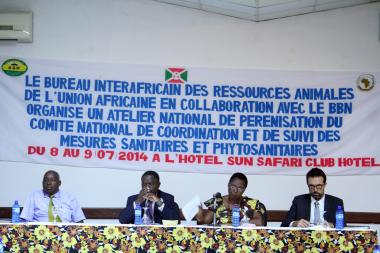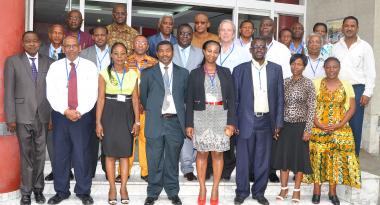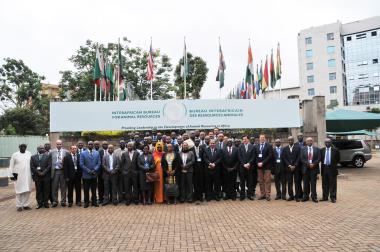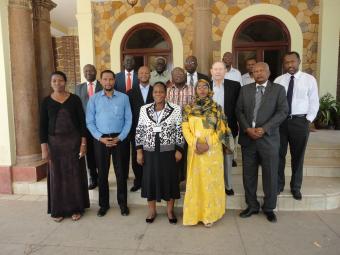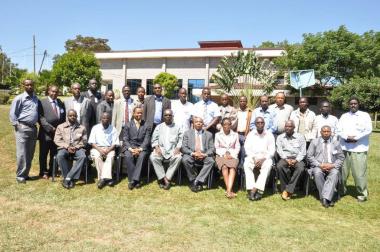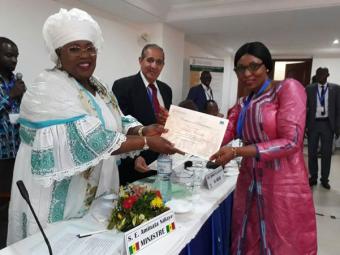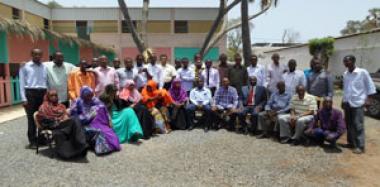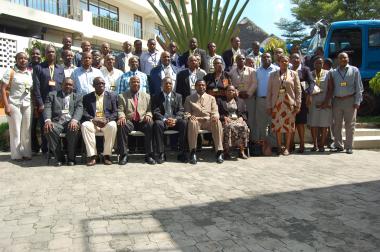Nigeria is a country of about 220 million people which makes it not only the most populous country in Africa but also one of the most populous countries in the world. Nigeria's significant population impacts its economy, politics, and social structure, contributing to its influence on the continent.
Nigeria’s feed and fodder sector, like many others faces similar challenges. The country imports millions of tons of animal feed and raw materials yearly and mostly used for the production of cattle, poultry and pigs. Feed and fodder are critical components in livestock production, accounting for 60-70% of the total cost of raising livestock. However, there is a stark contrast between global practices and the reality in Africa, where livestock keepers often feed their animals with whatever is available rather than against specific production targets.
Globally, around 60% of grain production is dedicated to livestock feed, a significant statistic that shows its importance in food and nutrition security. Agricultural land worldwide spans approximately five billion hectares, about 38% of the global land surface. Of this, one-third is used as cropland, with the remaining two-thirds comprising meadows and pastures for grazing livestock.
In contrast, Africa faces unique challenges in its feed and fodder development. The continent, which is home to a third of the global livestock herd, has limited production of grain specifically for livestock feed. Additionally, land available for livestock is rapidly shrinking due to competing needs from other sectors. Most African livestock keepers rely on whatever feed is available rather than aiming for specific production targets.
The unstructured nature of Africa’s feed and fodder sub-sector has led to significant market failures, exacerbating the urgency of addressing these shortages. The Comprehensive Africa Agriculture Development Program (CADDP) Malabo Declaration 4th Biennial Review Report (BRR) 2023 highlights that the inability to address hunger and malnutrition remains a persistent issue since the first BRR, with minimal improvement.
FAOStat data for 45 countries from 2014-2018 reveals that African consumption of livestock-sourced proteins is 12.2 grams per day per capita, compared to the global average of 26.8 grams. While global consumption increased by 2.8% in this period, African consumption declined by 3.7%. Doubling consumption to meet nutritional needs would require a corresponding doubling of production. However, due to the unstructured feed and fodder sector, nutrition-dense livestock-sourced foods remain luxury items, unaffordable for most of the population.
An International Dairy Federation (IDF) report indicates that the average African household spends more than 10% of its daily income to afford dairy products. This financial burden highlights the economic barriers to accessing essential nutrition. The impact of climate change, including unprecedented flooding and severe droughts, further complicates the feed and fodder landscape in Africa.
Despite challenges in the sector, Africa's livestock sector is a vital part of the continent's economy. It contributes 24% of the agricultural GDP and up to 50-73% in at least 10% of African countries. Moreover, the sector is experiencing rapid growth in some regions, outcompeting food and cash crop sectors and attracting significant involvement from the youth.
Meeting Malabo Declaration Targets on Nutrition: A Persistent Challenge
The Malabo Declaration, adopted by African Union (AU) member states in 2014, set ambitious targets to improve nutrition and reduce child stunting across the continent. However, as of 2023, progress toward these goals has remained elusive, with significant disparities in achievements among member states.
According to the Fourth Biennial Review Report (BRR), the continental target of reducing the prevalence of stunting to 10% or less has not been achieved. Out of the 40 AU member states that submitted reports on stunting, only seven are on track: Cape Verde, Comoros, Ethiopia, Gabon, Mauritius, Seychelles, and Tunisia. These countries have made commendable progress, with Tunisia reporting a stunting rate as low as 0.01%.
Meanwhile, four other countries—Burkina Faso, Egypt, Kenya (17.6%), and Somalia (18.0%)—are making progress toward the 2025 target. Despite these efforts, stunting remains alarmingly high (above 25%) in 19 member states, including Uganda (26%), Sierra Leone, Zimbabwe (26.7%), Cameroon (28.7%), and Nigeria (30.5%). Madagascar reports the highest prevalence at a staggering 79.7%.
A significant barrier to achieving nutrition targets is the poorly developed feed and fodder supply chains across many AU member states. Unlike other regions where 60% of grain is grown explicitly for livestock feed, African countries heavily rely on imports, leading to chronic feed deficits. This reliance makes the livestock sector vulnerable to supply chain disruptions.
Evidence from across the continent indicates that many animal resource-based businesses are fragile and facing collapse due to feed shortages. Since 2018, the compounding effects of drought and other crises have forced 22 dairy processing units to close in Kenya. Uganda's once-thriving aquaculture sector has shrunk by a third, and Nigeria's poultry industry is on the brink of collapse due to high feed costs and availability challenges.
Animal farming is a major source of employment for African youth, with 24% engaged in this sector. Seasonal and climate-induced fluctuations in fodder availability lead to instability in employment and income for many young people involved in livestock farming.
Meeting the Malabo Declaration targets on nutrition remains a significant challenge for African countries. To make meaningful progress, there is a need for concerted efforts to develop robust feed and fodder supply chains, reduce resource wastage, and stabilize youth employment in the agri-food sector.
Given the complexity of challenges in developing a sustainable feed and fodder value chain, the involvement of a diverse range of actors is imperative. Nigeria this week became the 4th Country to launch A multistakeholder platform (MSP) to serve as a collaborative mechanism to unite these diverse stakeholders to address challenges, foster joint commitments, and facilitate coordinated action towards sustainable development in the feed and fodder sector.
The primary objective of the MSP is to collectively transform the feed and fodder sector in Nigeria. This transformation aims to simultaneously achieve feed and fodder security, environmental sustainability, and economic opportunity. By bringing together diverse stakeholders, the MSP can create a unified front to tackle the multifaceted challenges facing the sector and drive meaningful progress.
The institutionalization of the Feed and Fodder Multistakeholder Platform marks a significant step towards addressing the critical challenges in the feed and fodder sector in Nigeria. By fostering collaboration among diverse stakeholders, the MSP aims to create a sustainable, secure, and economically viable feed and fodder value chain. This initiative, supported by a formal government mandate and an inclusive governance structure, promises to deliver substantial benefits to the livestock industry and contribute to the broader goals of food and nutrition security in Nigeria.
About AU-IBAR:
AU-IBAR operates as a technical office within the African Union Commission, with a core mission to support African Union member states in harnessing the potential of animals for human well-being and economic development. The organization plays a pivotal role in coordinating and advancing livestock development across the continent.
Note to Editors:
For additional information, please visit AU-IBARs website on RAFFS
For more Project information contact Dr. Sarah Ashanut Ossiya - sarah.ossiya@au-ibar.org
For communications and media inquiries, contact: Fiona Imbali- fiona.imbali@au-ibar.org

